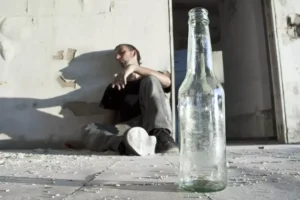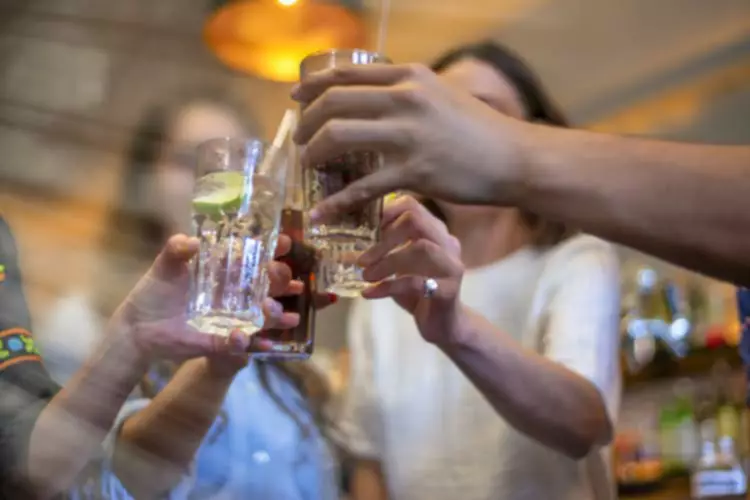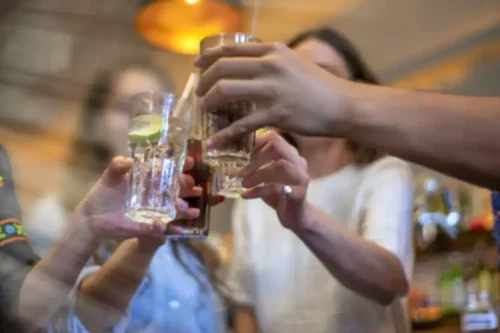
Detox treatment is aimed at keeping patients safe and comfortable. Detox programs, which vary in length but most commonly last about a week, may be part of a residential rehab program or administered in inpatient hospital settings. Recovery from addiction is generally divided into two phases. The acute phase is dominated by the physiological effects of the sudden stoppage, which typically includes intense substance craving.

Get Familiar With Resources for Families and Friends
At American Addiction Centers, we understand the challenges related to addiction and know it can be how to help with addiction hard supporting a loved one with an addiction. If you or your loved one are interested in learning more about treatment options, please call our confidential and free helpline to speak to a caring admissions navigator 24/7 at . We can help you find addiction treatment and check your insurance so you or a loved one can start recovery today. The Psychology Today website features an extensive registry of treatment centers, programs, expert clinicians, and support groups specializing in addiction recovery.

When Is It Time To Stage An Intervention?
Of course, you have to find the right moment for the conversation, and it is definitely not when your loved one is high or hung over. Whatever you say, never call someone an “alcoholic” or addict.” It’s not just a stigmatizing put-down, it actually limits how people can see themselves. It’s important to remember that no one expects to get addicted. Forcing someone to admit to a problem is not the wisest way to encourage someone to stop using the problematic substance or behavior. Instead, the goal is to quietly remove the many psychological barriers that keep a person from taking steps to overcome addiction. Even if an intervention doesn’t work, you and others in your loved one’s life can make changes that may help.

Support Programs for Substance Use Disorders: A Guide

Another one of the most important ways to support recovery is to understand that multiple relapses over a number of years are typically part of the process. They are not occasion for blame or despair but for encouraging resumption of recovery. Families can develop awareness of a loved one’s emotional, environmental, and social triggers of substance use and manage those. Studies show that families that participate in treatment programs increase the likelihood of a loved one staying in treatment and maintaining gains. On entering detox, patients undergo evaluation including testing for the presence of substances of abuse and examination of their mental and physical condition.
- Informed by her personal journey to recovery and support of loved ones in sobriety, Jessica’s empathetic and authentic approach resonates deeply with the Addiction Help community.
- Recovery suggests a state in which the addiction is overcome; clinical experience and research studies provide ample evidence.
- Recovery times vary according to the individual circumstances, which may involve several treatment strategies such as medication, rehab or treatment programs, and support groups.
- People continue to engage in harmful behaviors despite negative consequences because addiction changes the brain’s reward system, which increases the desire for the substances or experiences.
But over time, that temporary sense of control, however, can turn into dependency and eventually, loss of control. Recognizing when a loved one is struggling with substance use can be confusing, heartbreaking, and overwhelming. You may feel desperate to help, but unsure of how Substance abuse to do so without enabling their behavior or pushing them away. Additionally, health professionals need to assess and modify an individual’s treatment plan to meet their changing needs.
- The correlation between unemployment and SUD suggests a complex, often bidirectional relationship.
- Having a one-on-one conversation may be less intimidating than staging an intervention with several people.
Setbacks Are Part of the Process
- There are many different treatments that can help you during the process of overcoming an addiction, including medical and psychological approaches.
- The addiction recovery strategies we’ve explored together provide more than just a roadmap; they offer real hope backed by science and success stories.
- If there’s one thing I’ve learned in my years as an addiction medicine physician, it’s that recovery rarely follows a straight line.
- Now that you are sober, you may have discovered that some of your past relationships were not only unhealthy but downright toxic.
- Even the strongest cravings eventually pass, and having a plan gives you the confidence to ride them out.
- To learn more specifically about opioid use disorder, visit Treatment for Opioid Addiction.
- Similarly, effective addiction recovery strategies must address these biological changes, not just the behavior.
Once you do return to work, it’s important to create a budget and take steps to safeguard yourself as work stress can be a relapse trigger. Financial troubles and problems finding and keeping employment are major triggers for relapse, but it is possible to take baby steps and get your finances in order. Just keep in mind that your improvements won’t happen overnight.
Modern technology offers innovative ways to strengthen your recovery support system. These digital tools can provide assistance exactly when you need it most. Never underestimate the importance of human connection during difficult moments. Create an emergency contact list of supportive people you can call when cravings hit. Keep this list accessible so you’re never facing challenging moments alone. Many find that aligning their work with their values provides daily purpose and structure.


